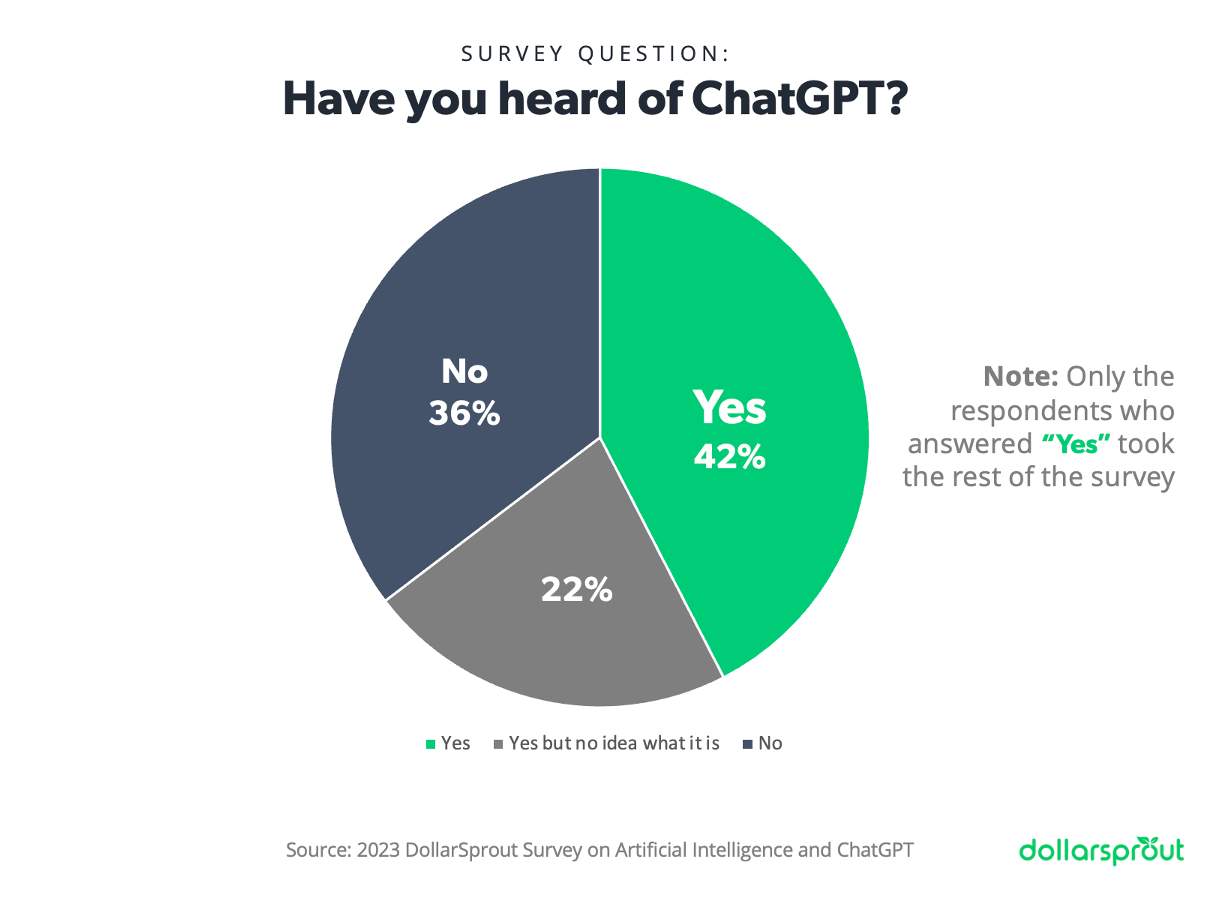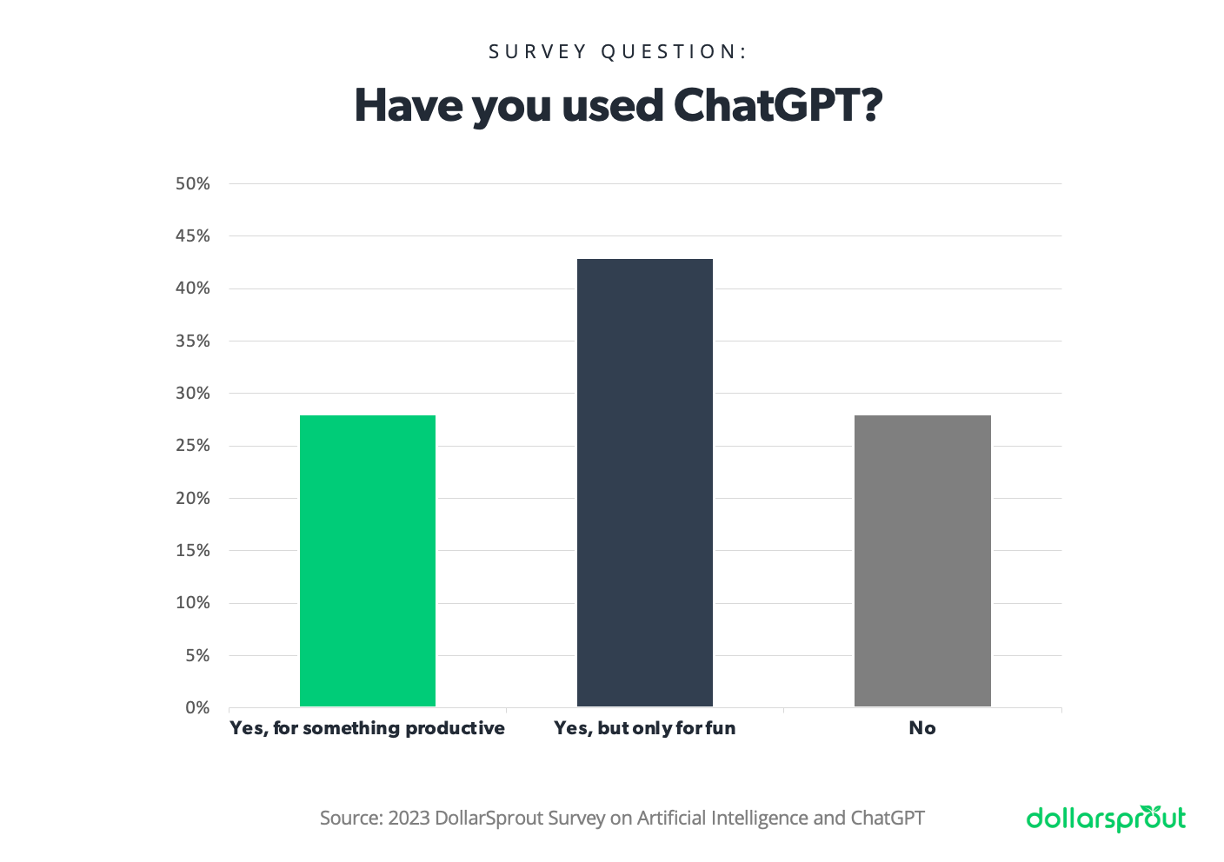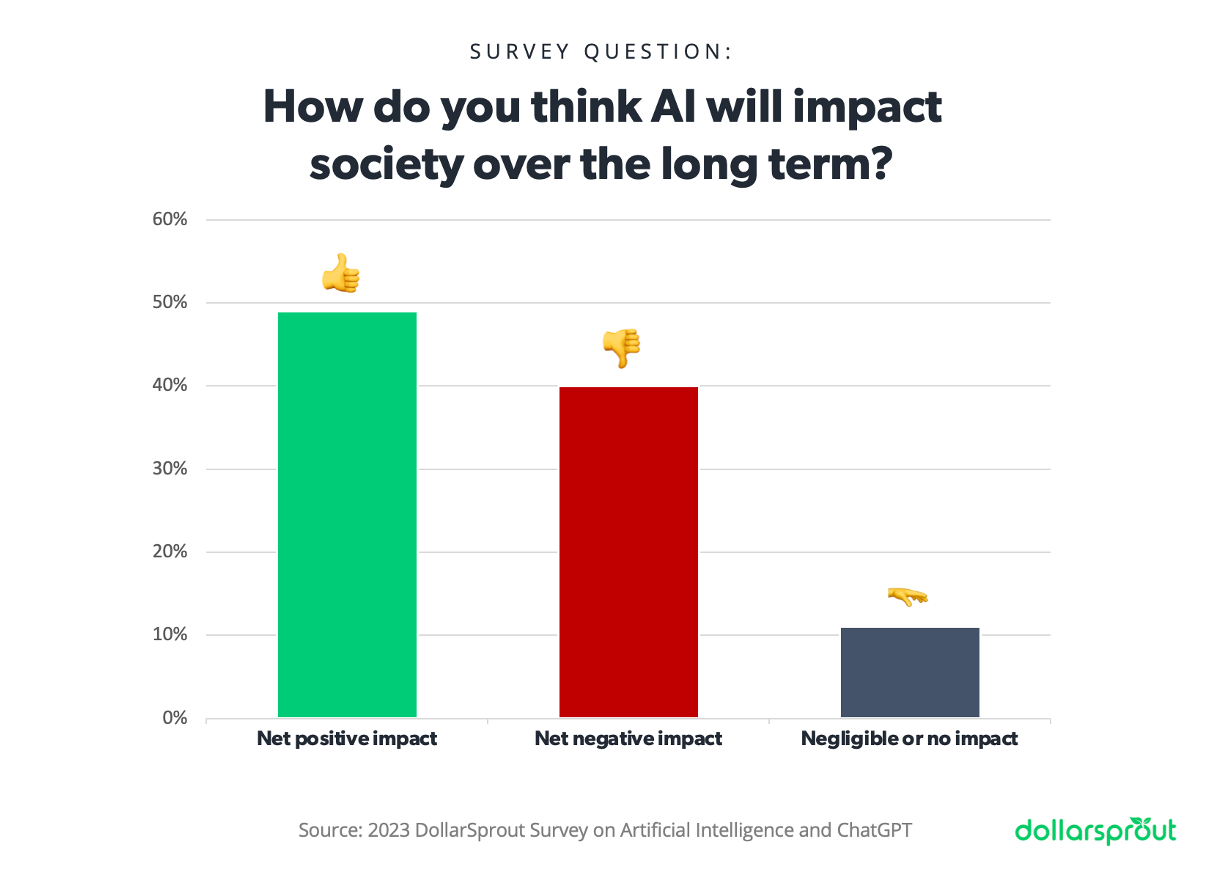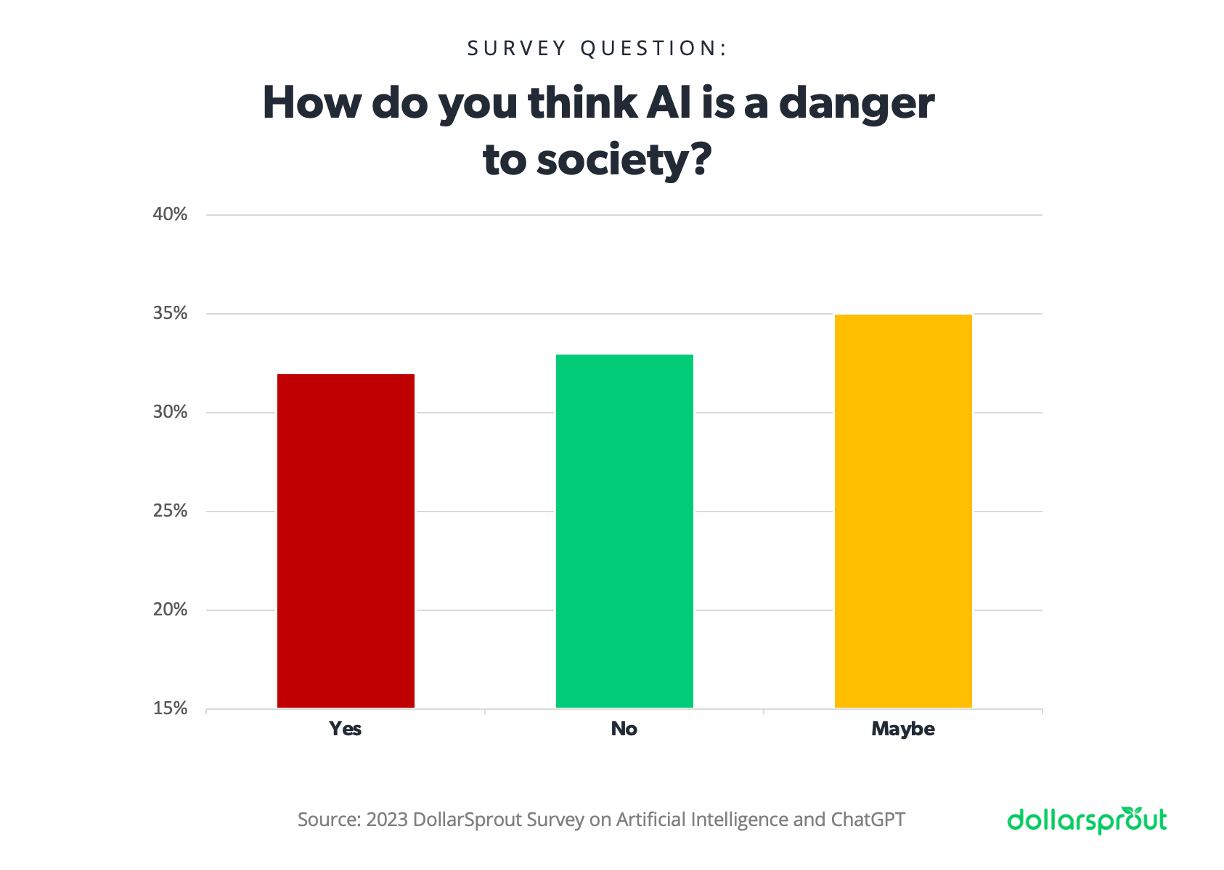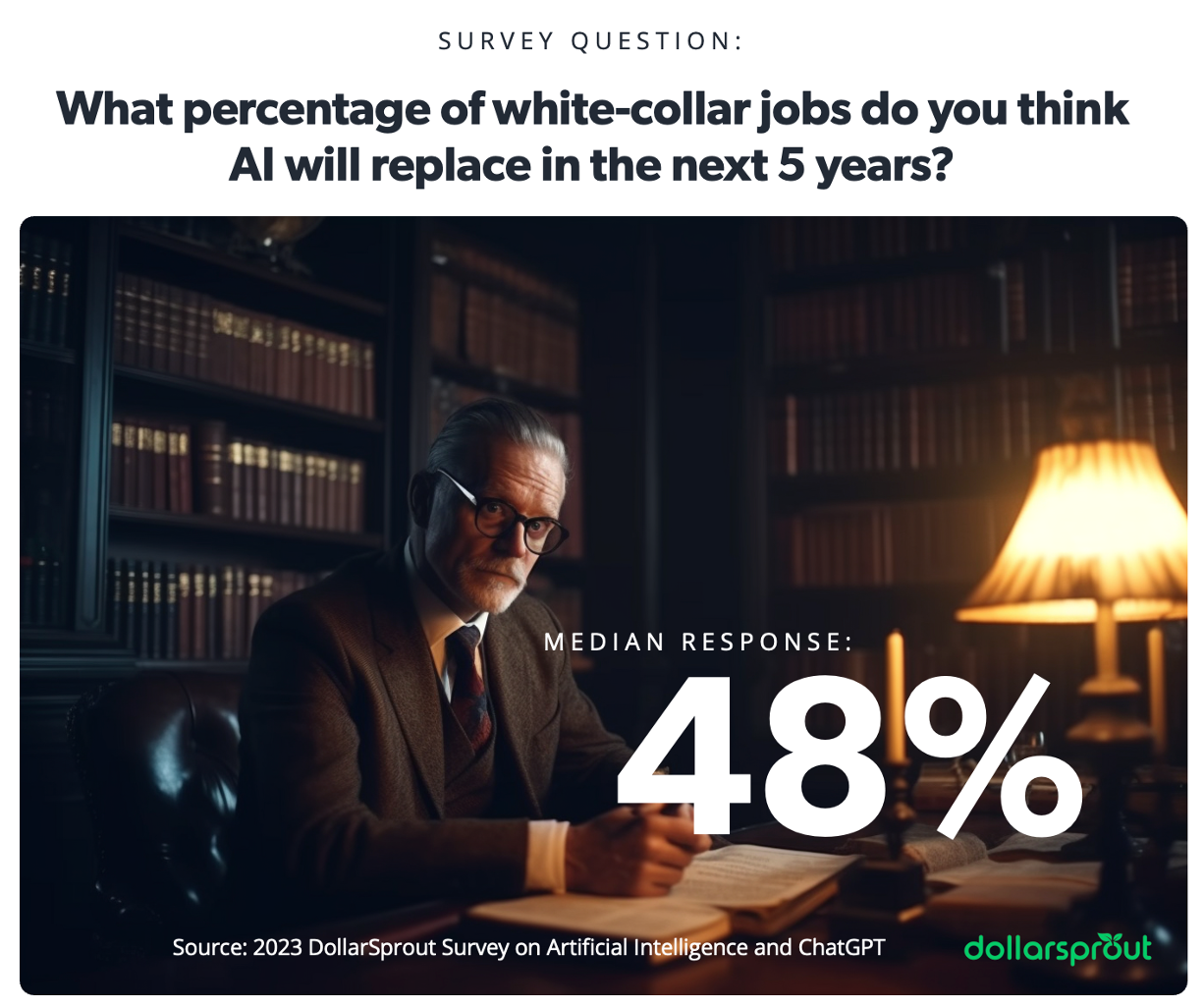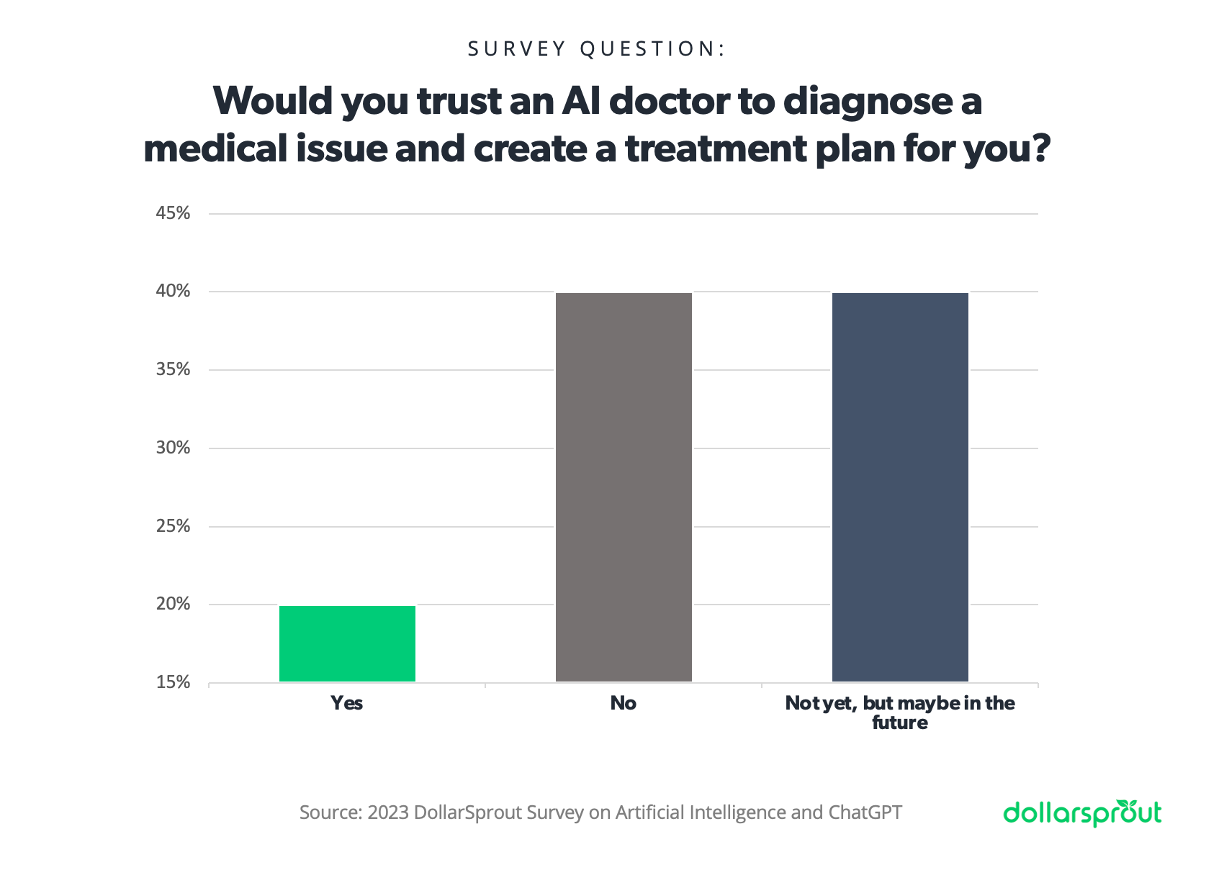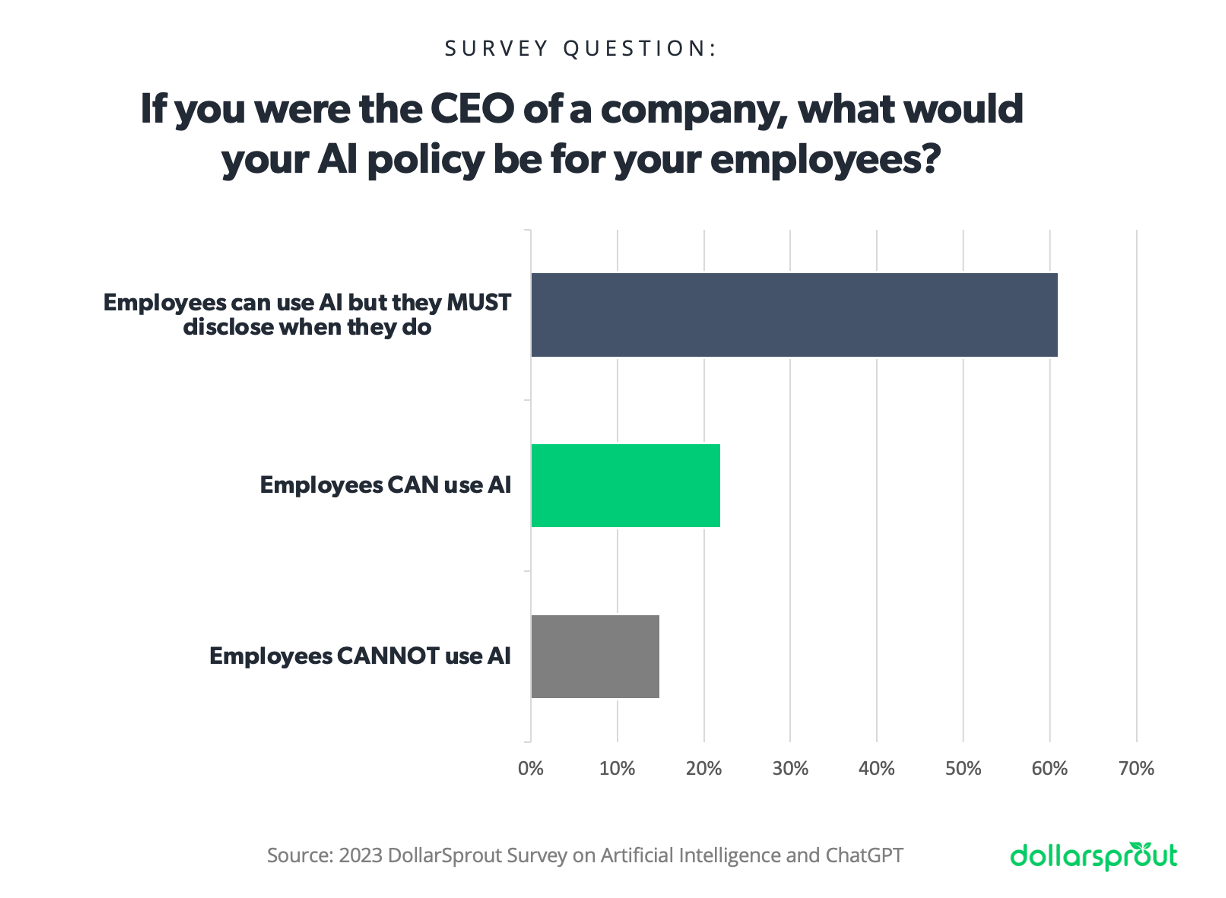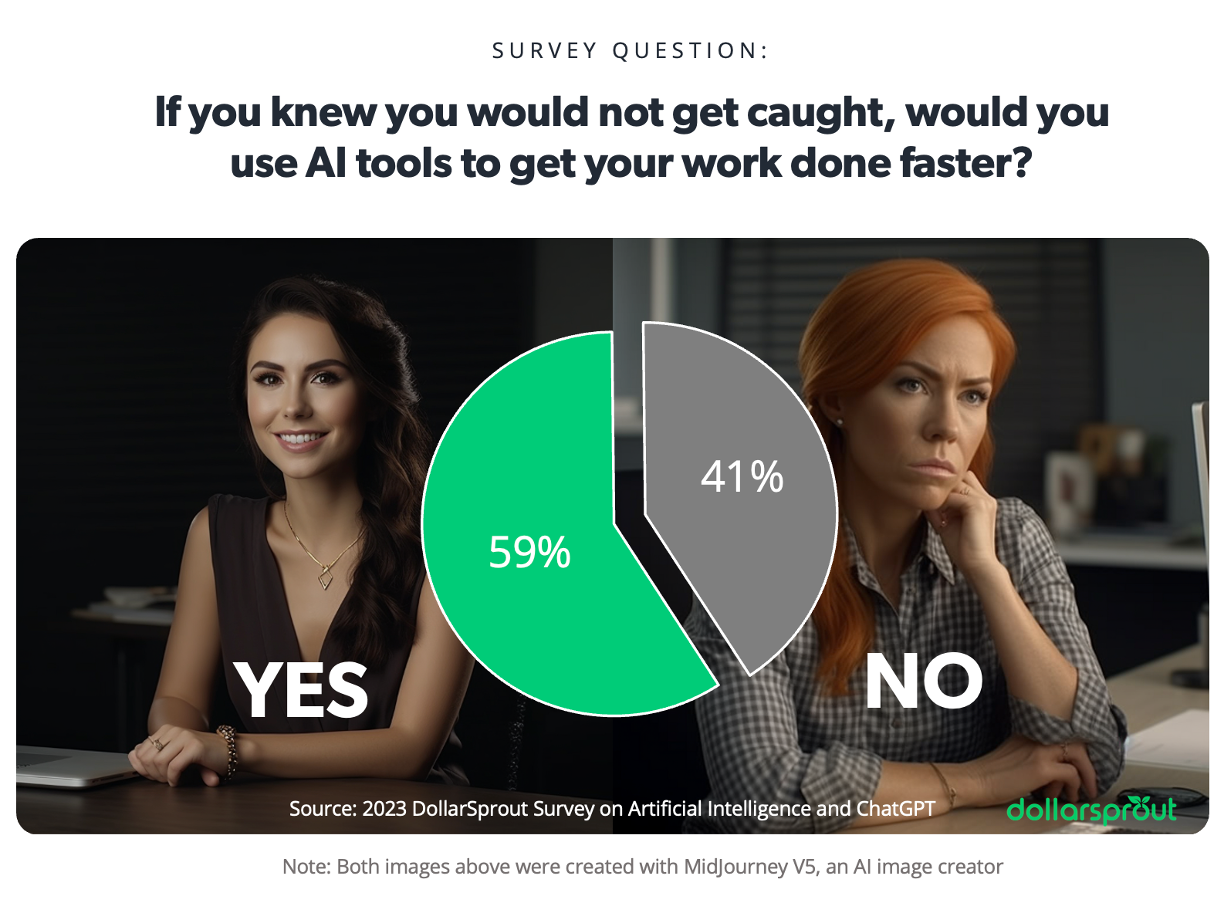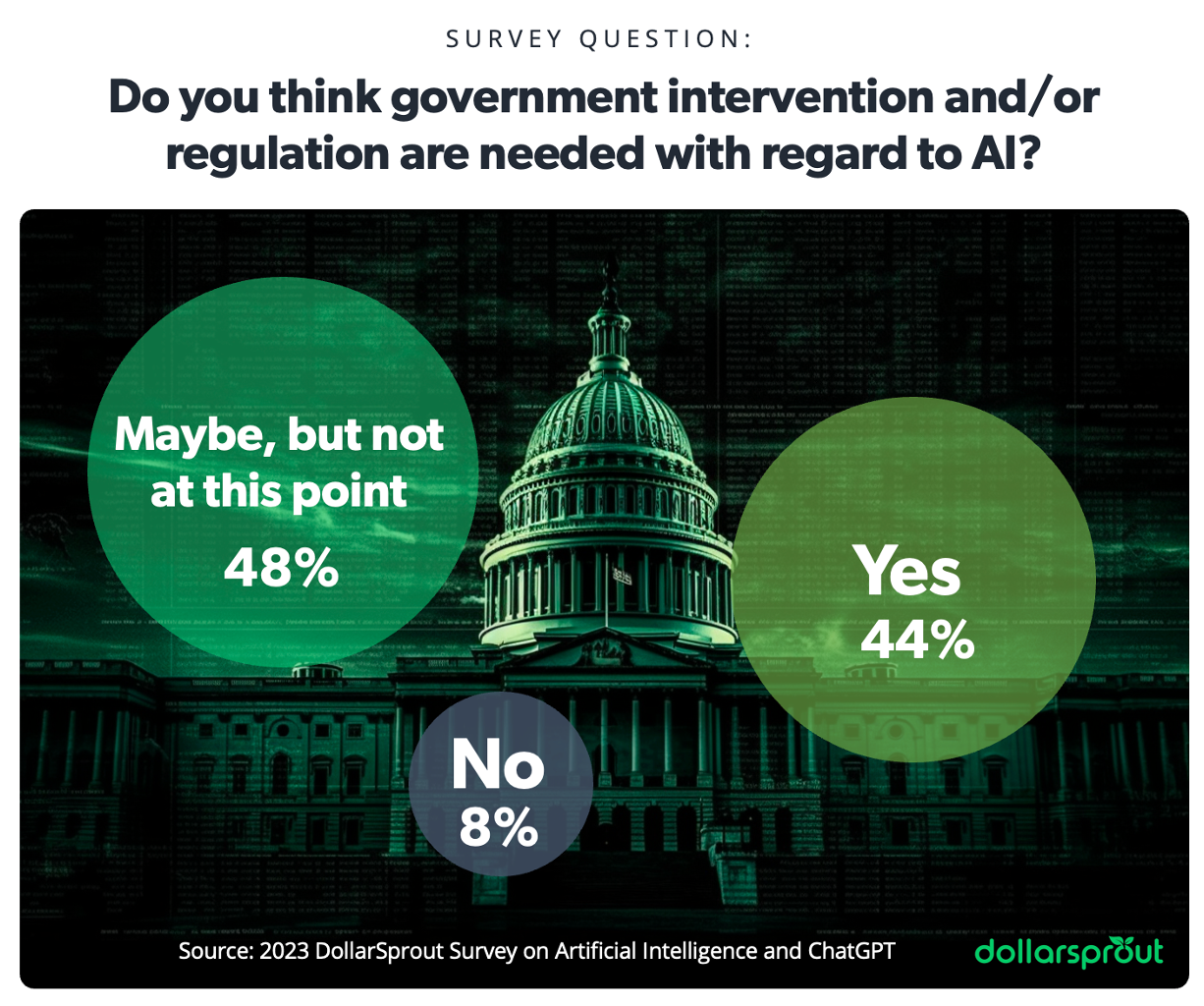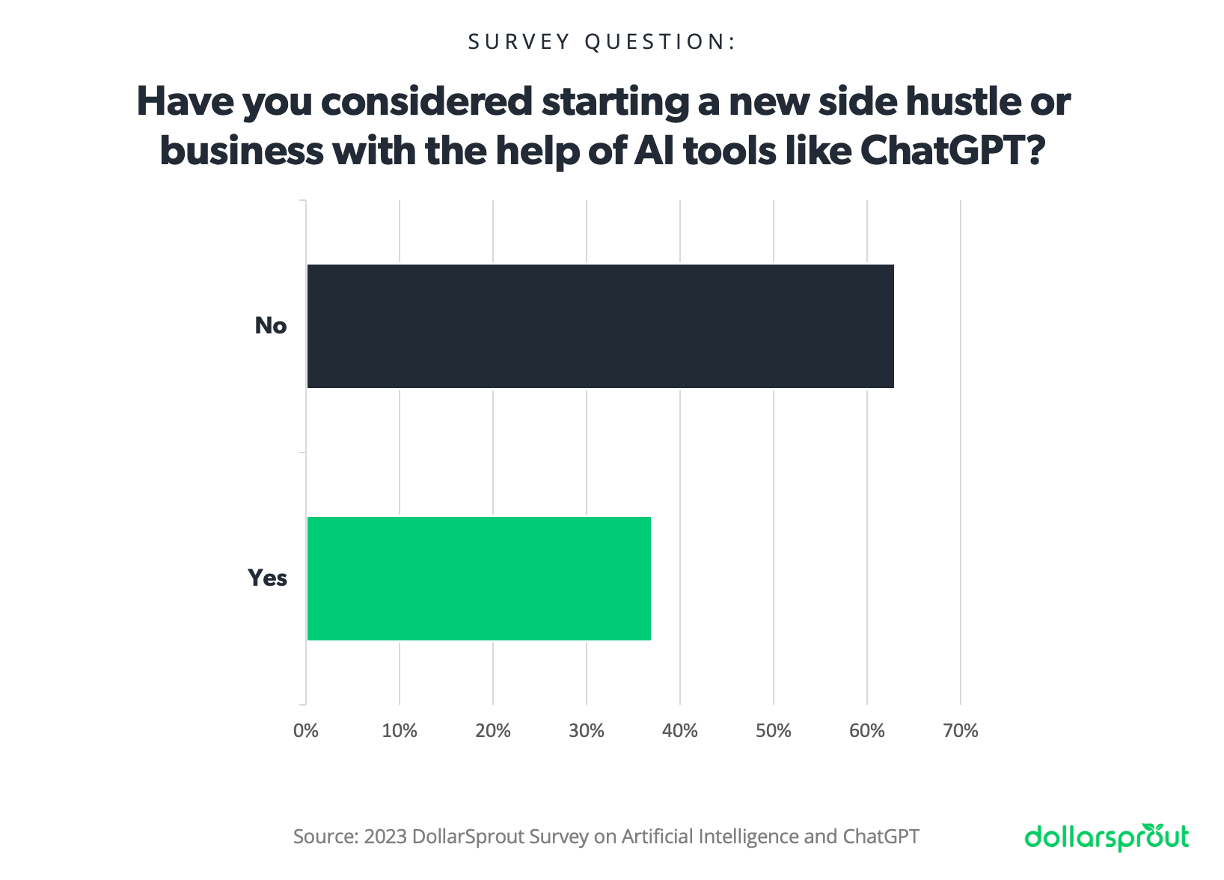We Asked Over 1,000 Everyday People About AI. Here’s What They Said.
Our readers always come first
The content on DollarSprout includes links to our advertising partners. When you read our content and click on one of our partners’ links, and then decide to complete an offer — whether it’s downloading an app, opening an account, or some other action — we may earn a commission from that advertiser, at no extra cost to you.
Our ultimate goal is to educate and inform, not lure you into signing up for certain offers. Compensation from our partners may impact what products we cover and where they appear on the site, but does not have any impact on the objectivity of our reviews or advice.
While many are open to embracing AI in various aspects of life, there is still serious concern about its impact on society.

Our mission at DollarSprout is to help readers improve their financial lives, and we regularly partner with companies that share that same vision. If a purchase or signup is made through one of our Partners’ links, we may receive compensation for the referral. Learn more here.
Key Findings:
» Only 42% of Americans have heard of ChatGPT, and of those people, slightly more than 1 in 4 have used it for something productive.**
» 49% of respondents think AI will have a net positive impact on society; 40% think it will have a net negative impact.
» 32% of respondents believe that AI poses a danger to society.
» 20% of respondents would trust an AI doctor, while 40% said they may in the future.
» 15% of people would not allow employees to use AI if they were running a business.
» 59% would use AI tools at work if they knew they would not get caught.
» 92% think that government regulation is needed or will be needed in the future for AI.
» 37% have considered using tools like ChatGPT to start a business or side hustle.
** The rest of the survey results are from the 42% of respondents that have heard of ChatGPT.
If you spend any amount of time on Twitter or keep up with technology news, you probably feel like Artificial Intelligence (AI) is coming for us like a giant tsunami wave — for better or for worse.
But what do normal, everyday Americans think?
It’s easy to get caught up in social media echo chambers and lose sight of what the true public sentiment is on a topic, let alone awareness.
To get a clearer understanding of public attitudes and trust towards AI and tools like ChatGPT, DollarSprout recently conducted a survey of 1,177 American adults that revealed some interesting (and surprising) findings.
How We Constructed the Survey
Since every question on the survey was in some way related to AI or ChatGPT, respondents had to be screened in order to get meaningful data.
Only respondents who answered “yes” to having heard of ChatGPT and knew what it was were prompted to complete the rest of the survey:
This simple screening question already reveals something interesting: more than half of Americans have no idea what ChatGPT is, let alone how to use it or how impactful it may (or may not) be.
The rest of the results from this survey are only from people who have heard of ChatGPT.
ChatGPT Adoption and Usage
The survey revealed that 28% of respondents have used ChatGPT for something productive, while 43% have just tried it out for fun. Interestingly, 28% of respondents have not used ChatGPT at all. While many people have started actively using AI tools, there is still a significant portion of the population who have not yet adopted the technology or found use cases that would be beneficial to them yet.
Societal Impact and Potential Danger of AI
When asked about AI’s long-term impact on society, 49% of respondents think AI will have a net positive impact, while 40% say it will have a net negative impact. A smaller portion, 11%, believe AI will have no impact or a negligible one. These mixed opinions highlight the ongoing debate surrounding AI’s role in shaping the future.
The survey results show that public opinion is divided when it comes to the question of whether AI is a danger to society. 32% believe it is, while 33% say it’s not a danger, and 35% remain uncertain, responding with “maybe.” This split suggests that many individuals are still forming their opinions on AI’s potential dangers.
White Collar Jobs and AI
With the near entirety of written human knowledge being fed into machine learning algorithms, many are concerned about what that might mean for basically anyone that works in a non-manual labor job.
But when it comes to trusting AI in healthcare, only 20% of respondents said they would trust an AI doctor to diagnose a medical issue and come up with a treatment plan for them. On the other hand, 40% outright rejected the idea, while another 40% said they wouldn’t trust AI now but might consider it in the future. It’s important to note that AI has already been shown to pass the U.S. Medical Licensing Exam.
While there is clearly some resistance to AI’s involvement in healthcare, the fact that this is even a possibility is significant. As time goes on and more advances are made, it’s reasonable to assume that public trust in AI will slowly start to build within the healthcare industry.
AI in the Workplace
Even if we aren’t ready to have AI treat us for medical conditions just yet, there is no arguing that tools like ChatGPT are capable of writing emails, performing data analysis, and plenty of other mundane office tasks.
And that begs the question, how should this be used by companies in their day-to-day operations?
Results show that people are generally pro-AI when it comes to workplace usage, but most lean towards an open-disclosure policy. 61% of respondents said that if they were CEO of a company, they would allow employees to use AI but only if the employees disclosed when it was being used. In contrast, 22% said they would allow AI use without disclosure, and 15% of respondents said they would not allow employees to use AI at all.
From an employee perspective, we asked the following:
The survey found that 59% of respondents would use AI tools to help them get their work done faster if they knew they wouldn’t get caught, while 41% said they would not.
Related: I Asked 39 Experts Their Opinion of AI Side Hustles. Here’s What They Said
Government Intervention and Regulation
With how rapidly AI is advancing, many are wondering if there will come a need for government regulation.
44% of respondents think that government regulation and/or intervention are needed right now. Meanwhile, 48% said “maybe, but not at this point in time,” and 8% said no regulation or intervention is needed or will ever be needed. People familiar with AI are obviously cautious about AI development and believe that oversight may be necessary at some point.
AI and Entrepreneurship
Even if AI may threaten entire industries in the future, there are still opportunities today to use tools like ChatGPT, among others, to start a new business or side hustle.
Finally, the survey explored the intersection of AI and entrepreneurship. 37% of respondents have considered starting a new business or AI-assisted side hustle with the help of tools like ChatGPT, while 63% have not considered this possibility.


